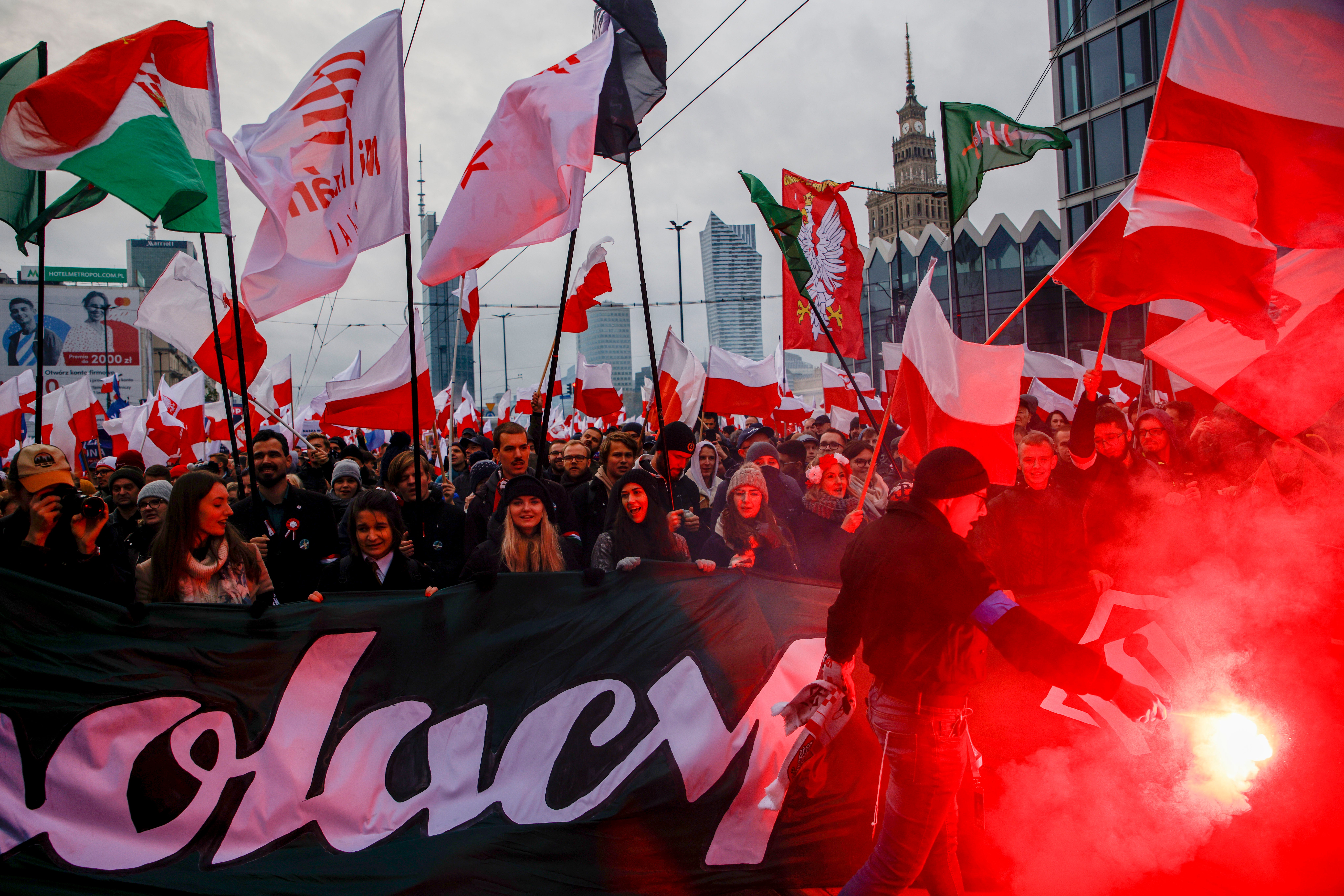Thousands join nationalist march on Polish Independence Day
Thousands of people in Warsaw have joined a yearly Independence Day march that is organized by Polish nationalist groups and has has been marked by violence in past years

Your support helps us to tell the story
From reproductive rights to climate change to Big Tech, The Independent is on the ground when the story is developing. Whether it's investigating the financials of Elon Musk's pro-Trump PAC or producing our latest documentary, 'The A Word', which shines a light on the American women fighting for reproductive rights, we know how important it is to parse out the facts from the messaging.
At such a critical moment in US history, we need reporters on the ground. Your donation allows us to keep sending journalists to speak to both sides of the story.
The Independent is trusted by Americans across the entire political spectrum. And unlike many other quality news outlets, we choose not to lock Americans out of our reporting and analysis with paywalls. We believe quality journalism should be available to everyone, paid for by those who can afford it.
Your support makes all the difference.Thousands of people in Warsaw on Friday joined a yearly Independence Day march that is organized by Polish nationalist groups and has has been marked by violence in past years.
The march is controversial because it's led by far-right groups and has included white nationalist and anti-immigrant messages in past years. But many people, including some with young children, also march, seeing the event as a way to show their patriotism.
Large numbers carried Poland's white-and-red flag and some fired flares. A few people carried banners of the far-right National Radical Camp depicting a falanga, a far-right symbol dating to the 1930s of a stylized hand with a sword.
This year’s Independence March took place under the slogans “Poland as a nation-state” and “Strong Nation. Great Poland.”
A large number of police officers were deployed to avoid the violence of past years, which included riots, clashes with police and the destruction of city infrastructure.
Masked officers kept a group of anti-fascist counter-protesters separated from march participants.
One activist holding an LGBT flag, Dominik Gasiorowski, said an officer forcefully grabbed him and removed him and others who were chanting that they have the right to demonstrate. They were told their gathering was illegal.
At a separate location in Warsaw, an anti-fascist gathering included people in colorful clothes beating drums.
The Independence Day holiday celebrates the restoration of Poland's national sovereignty in 1918, at the end of World War I and 123 years of foreign rule. Across Poland, events were held to mark the day, including singing the national anthem and a ceremony led by President Andrzej Duda at the Tomb of the Unknown Soldier.
“The reality of recent years has made us very suddenly aware of what it means to have and not to have a free, sovereign state, what it means to have and not to have independence,” Duda said, alluding to Russia's invasion of Ukraine.
Duda was joined by Gitanas Nauseda, the president of Lithuania, which like Poland is a strong ally of Ukraine.
Ukraine's President Volodymyr Zelenskyy sent a moving Independence Day greeting to Poland in a short video expressing gratitude for Poland's help since Russia's invasion of Ukraine in February.
“Ukrainians will remember how you welcomed us, how you help us. Your country is our sister,” Zelenskyy said.
Poles have rallied to Ukraine's cause, and Poland has welcomed large numbers of refugees. But there are also lingering tensions over a Polish-Ukrainian ethnic conflict in which 100,000 Poles were killed by Ukrainians during World War II.
Some far-right groups try to keep those tensions alive. One large poster in Friday's march read “Stop the Ukrainization of Poland.”